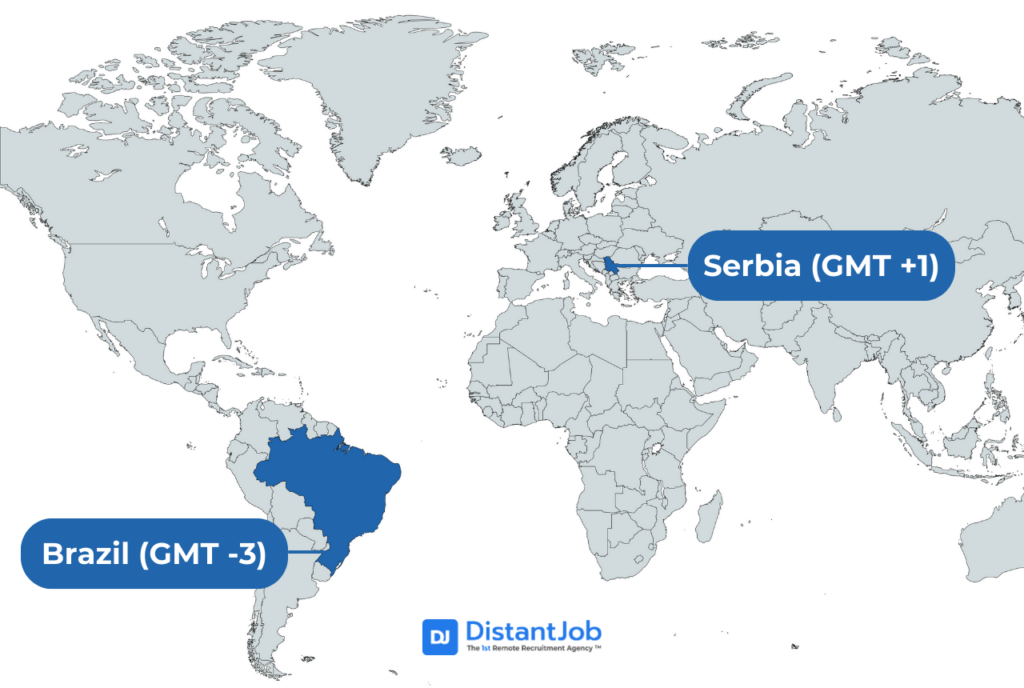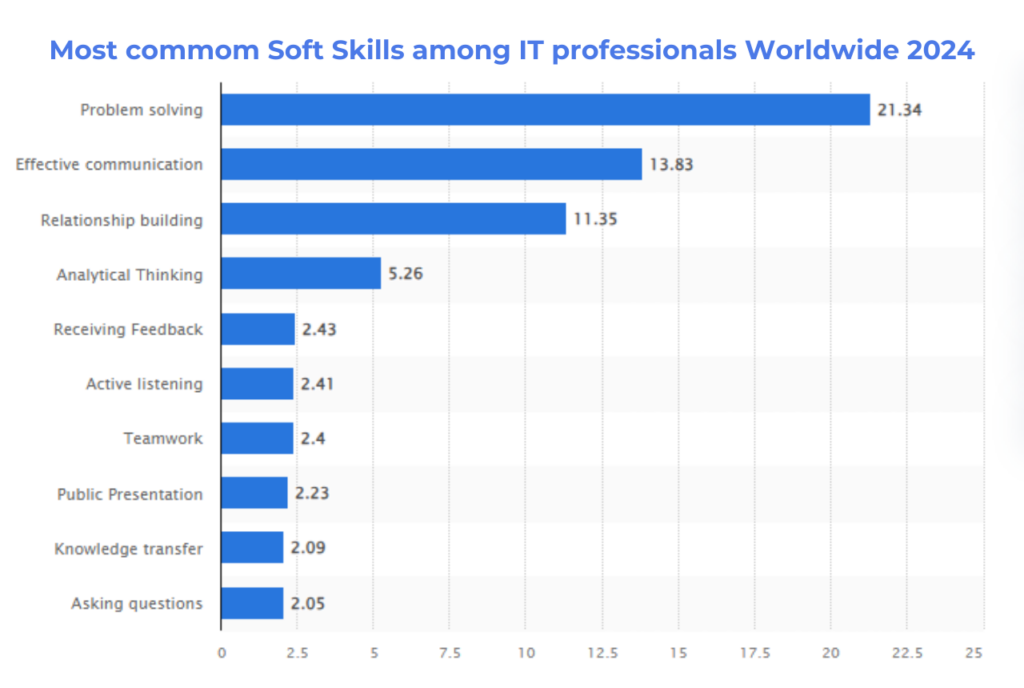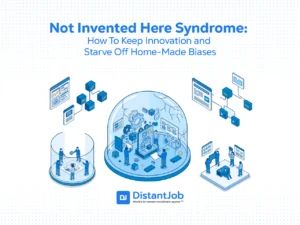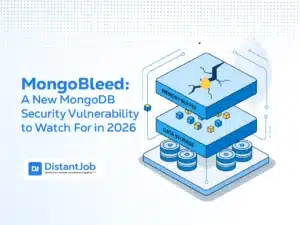Soft skills such as communication, empathy, adaptability, and collaboration are essential in remote work, where face-to-face interaction is limited. In fact, research shows that 85% of job success comes from soft skills, while only 15% is attributed to technical knowledge. Strong soft skills impact everything from team productivity (21% higher profitability) to customer satisfaction (20% increase with empathetic service), and even innovation in multicultural teams (35% better results).
As a business owner, I’ve found that while technical expertise gets candidates through the door, it’s their human skills upon which to build any great team. So, how can remote employees develop these vital abilities without face-to-face interaction? The answer lies in being intentional:
- Practice clear, thoughtful written communication through email and chat.
- Use video calls to build rapport and improve verbal and nonverbal cues.
- Seek feedback regularly and stay open to constructive conversations.
- Join team discussions proactively and contribute solutions to shared challenges.
- Adapt by staying flexible and learning from each new experience.
Mastering these skills in a remote setting not only makes you a stronger teammate—it turns you into the kind of employee companies rely on to lead, collaborate, and grow. Let’s define what those soft skills are and on each and one of them, we discuss how you can improve on them.
Here are the 8 soft skills we’ll be talking about:
- Autonomy & Accountability
- Self-Awareness & Emotional Intelligence
- Asynchronous Mindset
- Communication
- Relationship Building & Empathy
- Conflict Resolution & Problem-Solving
- Time management & Self-Management
- Cultural Literacy & Intelligence
And, finally, we’ll share with you How to Spot and Assess Them in Remote Candidates.
1. Autonomy & Accountability
These two soft skills are foundational for the success of any remote worker.
Because if you’re autonomous, you’ll be making choices on your own, taking charge of projects and your own tasks.
Now, if you’re accountable, the part of taking charge of their projects and tasks gets taken a bit further. You are and feel responsible for what you’re doing. You are not just cruising along and letting others do the hard work.
How to Build Autonomy and Accountability in Remote Teams
- Set clear goals and ownership for each task or project
- Encourage decision-making without micromanagement
- Create a safe space for mistakes—focus on solutions, not blame
- Use regular check-ins to track progress, not control
- Reward initiative and transparency, not just results
2. Self-Awareness & Emotional Intelligence
These two skills are foundational and crucial to remote team success. While self-awareness lays the groundwork for emotional intelligence, it’s the latter who ends up shining. We could say that self-awareness is more like that root, something that is hidden from view, but from it grows something beautiful that all can see, like a sturdy tree, which is EI. And from this tree, comes this great fruit in the form of other soft skills for remote work.
Now, emotional intelligence allows the person to extend an olive branch outwardly. People who possess this soft skill, besides knowing what’s going within themselves, know how to manage these emotions, and how to deal with them in a constructive way. And in the same way, they are able to understand others, showing patience and understanding, dealing with conflicts, stress, and challenges in a positive manner.
How to improve self-awareness and emotional intelligence in a remote setting:
- Use mindfulness techniques – take a pause before reacting, especially in high-stress situations, to manage emotions constructively.
- Listen actively during remote meetings – focus on tone, context, and body language to better understand others’ emotions.
- Seek honest feedback – ask peers and managers how your communication and behavior affect the team.
- Build empathy – try to see situations from others’ perspectives and respond with patience and understanding.
- Handle conflict calmly – use emotional regulation to resolve issues without escalation.
- Stay aware of your impact – notice how your mood, words, or actions affect remote team dynamics.
3. Asynchronous Mindset

In order to achieve great collaboration across time zones with little to no overlap, being good at asynchronous communication is a must. And this soft skill ties back to self-management and time management with a huge dose of organization, initiative and clear communication.
To master asynchronous communication as a remote worker, focus on writing clear, concise messages that include all relevant context so others can take action without needing immediate clarification. Use the right tools to keep communication organized and accessible, and always document key updates or decisions. Be mindful of your teammates’ time zones and allow space for thoughtful responses instead of expecting instant replies.
4. Communication
Communicating well isn’t a soft skill that’s just required for remote work. It’s a skill we all need, but not all of us possess. If some people have trouble communicating face to face and seeing eye to eye, long-distance can definitely put a damper on things.
And, when your team needs to work with written communication first, having a team member who has this soft skills lightens the mood and allows for understanding rather than misunderstanding.
This means that they’ll speak and write well and clearly, especially in English. They’ll be polite and friendly, choosing sentences like “Could you take a look at this today, please?” instead of more forceful (and maybe aggressive) ones like “Fix this ASAP”.
Besides, as our VP of Marketing Luis said on our podcasts about Enhancing Job Satisfaction, this communication skill shows up in the form of employees closing the loop. Which means they don’t wait to be asked if a task is done, they go ahead and tell their manager or boss: “Hey, that thing you asked for, here it is.” As he put it:
“When I give you a task, don’t expect me to check if it’s completed. Come back to me and tell me, hey. I completed that task. Right? That closes the loop, and I know that you’ve done your part right, and I don’t need to be micromanaging.”
5. Relationship Building & Empathy
In order for things to happen and work, we need human connection.
Some leaders may think the way into getting something done is through fear (and even harassment).
Exhibit A: Michael Scott, from The Office series, once said:
“Would I rather be feared or loved? Easy. Both. I want people to be afraid of how much they love me.”
Exhibit B: The Queen of Hearts in Alice of Wonderland, who’d rather be feared, and used to say
“Sentence first—verdict afterwards,” and “Off with his head!”
While Michael Scott might not be the best example of leadership, he had this going for him—he definitely wanted to build relationships (even if he couldn’t). Now, the Queen couldn’t care less about her subjects, and made them live in constant fear. And I’m pretty sure that whatever they delivered was never to their full potential, as with fear comes insecurity, and insecurity never allows for the highest potential to be expressed.
The reality is that, if relationships are strong, employees and team members might go the extra mile, work a bit harder, or lend a coworker a helping hand, just for the sake of their relationship. Meaning, they’re more proactive and productive.
How to develop relationship building skills:
- Listen to your coworkers and show they care about them, for real.
- Be open to feedback, and consistently share constructive criticism, with awareness for the right place and time.
- Try to connect with them, by sharing personal stuff
6. Conflict Resolution & Problem-Solving
Conflict resolution and problem-solving might look different in writing, but they’re pretty much the same when it comes to how they show up in life and in a remote work setting. And that happens because they both grow from the same root or ability: the ability to stay level-headed and think critically about that task at hand and the path forward.
And since remote work presents an even bigger challenge, as people can’t see each other’s body languages, are more often than not relying on written communication, don’t all speak the same mother tongue, and don’t have as many casual talks as they would in a regular office, managing conflicts and solving problems becomes even more difficult.
And, in fact, here’s something interesting: when asked in 2024, IT professionals rated problem-solving as the top soft skill to have, with a score of 21.34, beating others such as good communication and relationship building.

To improve these skills, focus on staying calm under pressure and approaching challenges with a clear, analytical mindset. Practice active listening—even in written form—by reading messages carefully and asking clarifying questions before responding. Be mindful of tone, cultural differences, and language barriers, and aim to address issues directly but respectfully.
7. Time Management and Self-Management
Time management and self-management are critical skills for remote workers, where structure and accountability often depend on the individual.
Self-management has more to do with the person, per se. Their goals, priorities, behavior, to do lists, etc. It shows up in how someone handles themselves and their work, and how independent they can be. If they’re organized or not and if they’re able to self-motivate.
Time management is a type of self-management, I would say. But it actually comes down to the daily schedule and keeping track of one’s tasks and deadlines. These people know what they need to do, how long it takes to complete each task, and how to work right to hit—and not miss—deadlines.
How to improve at self and time management:
- Set clear daily goals – define what needs to be accomplished and break tasks into manageable steps.
- Prioritize effectively – use time blocking to focus on what matters most.
- Use productivity tools – apps like Trello, Todoist, or Google Calendar help organize tasks and deadlines.
- Create a dedicated workspace – reduce distractions by working in a consistent, focused environment.
- Establish routines and boundaries – set working hours and take regular breaks to stay energized and avoid burnout.
- Track and review progress – reflect on what’s working and adjust your approach to stay on track.
- Practice self-discipline – avoid multitasking and stick to your plan, even without direct supervision
8. Cultural Literacy and Intelligence
Remote teams are not confined within countries, they’re everywhere. And with this geographical expansion comes also a possible clash of cultures.
Not only do you as an employee have to adapt to and work with the company culture, but you also have to deal with each other’s cultures. And when you have people working together that might not even speak the same mother tongue, how can you be aware of other cultures?
When you are skilled in cultural literacy and intelligence, you might not exactly know the cultural rules of other countries, but that doesn’t stop you from caring and wanting to adapt better.
How to Improve Cultural Awareness and Sensitivity as a Remote Worker
- Promote inclusion – make space for all voices, encourage diverse input, and avoid assumptions or stereotypes.
- Learn how different cultures communicate – recognize that tone, feedback styles, and formality vary across regions.
- Adapt your own communication style – shift your tone or approach depending on the cultural context of your audience.
- Show curiosity and respect – ask questions, learn about teammates’ traditions, and value diverse perspectives.
- Be mindful of time zones and holidays – plan meetings and deadlines with cultural and personal schedules in mind.
Top 10 Soft-Skills Interview Questions for Remote Workers
Clear summary, options, why one was chosen, and who did what next.
Simple language, what’s done, what’s next, risks, and any help needed.
Strong answers: saw the issue, checked impact, proposed a simple plan, followed through, measured the result.
Strong answers: stayed respectful, talked about goals not personalities, suggested alternatives, documented the final decision.
Strong answers: sets overlapping hours, leaves clear written notes, agrees on response times and deadlines.
Ask clarifying questions, restate the goal, suggest a first draft/plan, confirm before moving.
Strong answers: warn early, offer options (reduce scope or new date), agree on a plan, update stakeholders.
Explained trade-offs, delivered the must-have part, scheduled nice-to-have items later.
Agreed on success criteria, outlined pros/cons, captured the decision in writing so everyone’s clear.
How to Spot and Assess Soft Skills in Remote Candidates
In the end, although you may know what these soft skills may look like, picking the right candidates takes more than just following a gut feeling. So, to make sure you’re hiring the perfect people, you actually need a careful and solid plan to assess them. To help you do that, here’s how you can evaluate a candidate’s soft skills with confidence and certainty:
#1 – Create and Keep a Soft Skills Scorecard
First and foremost, before you start your hiring process with soft skills in mind, you must know what you’re looking for and how to rate your applicants’ essential people skills with a thorough and fair checklist.
When you lay the groundwork before screening starts, you are able to compare candidates and accurately spot those who shine when it comes to communicating, taking accountability, being autonomous, and working together, besides the other skills we’ve mentioned so far and that are so crucial for professional success.
How to Do It:
- Sit down with your stakeholders and team members and come up with a list of the key skills your team needs. Use the ones listed in the article as the basis for your list and make sure they align with your company’s culture.
- Choose a standard scale (for example, 1 to 5 where 1 =poor and 5 = excellent) and use it for each skill you assess. This system is key as it lets you and any other people involved in the screening process evaluate candidates in the same way.
- During the hiring process, make sure to rate your candidates’ soft skills.
- When you’re reaching the end of the recruitment journey, get all your applicants’ scores and compare them against one another. By contrasting them, you will be able to figure out which candidates’ soft and people skills are actually what your business and your teams need.
#2 – Ask Behavioral Questions for Soft Skills
Now that you know what soft skills you’re looking for and how to rate them, get started. Ask your candidates behavioral questions and apply the STAR Method (Situation, Task, Action Result) while doing it. As a result, you’ll see that this strategy will push them to share clear and in-depth stories that will ultimately demonstrate what skills they possess and which ones they’re most fluent at.
How to Do It:
- Begin with a core question: “Tell me about a time you were working remotely and were faced with a conflict. How did you sort it out?”
- If the candidate gives a vague response, ask follow up questions, like:
- “What happened and who was part of it?”
- “What was your specific goal or task?”
- “How did you address the conflict and how did you tackle the problem?”
- “What was the outcome and how did it affect and impact your team?”
- Remember—you don’t want vague answers. You want real and concrete details. You also want clear and tangible results, as these will show you if and how they can solve problems and communicate clearly and effectively.
#3 – Simulate Remote Exercises
If you’re a remote global business, you most definitely need to check your applicant’s ability to work from home, interact effectively with different cultures and across time zones, and communicate asynchronously. So it’s important to focus, during the hiring process, on assessing their cultural literacy, their written communication skills, and lastly, their remote readiness.
How to Do It:
- Set up a short, brief online collaborative team task (for example, pair-coding or solving problems as a group). This exercise must mimic real remote work issues and challenges that normally arise, such as slow, delayed replies and working across time zones.
- After the task, make sure you follow up, so ask them questions that focus on their remote work approach, such as: “When working with team members from other countries and time zones, how do you adjust your communication style, if at all? Why or why not?”
- Include a written segment in your assessment where your candidate needs to interact and respond asynchronously through writing—for example, have them draft a project update via email or collaborate with a team member via chat—so you can evaluate their communication style and skills.
- Keep a close eye on how they communicate and express themselves during the exercise, both in speaking and in writing:
1. Do they express ideas clearly?
2. Do they ask any clarifying questions?
3. Do they handle challenges well?, and
4. If so, how well?
Listen closely to their answers since they’ll give away some concrete and specific strategies they might use (like using simple language, adjusting their tone, or changing meeting times to adjust to different time zones). These answers will show you if their approach matches your company’s remote work habits and practices and its cultural values.
In the end, by using these hiring techniques, you’ll go beyond surface-level evaluations, which means you’ll be closer to finding people with the soft skills that ultimately make a difference and align with your company culture and goals for the present and the future.
Conclusion
As you can probably tell by now, soft skills in remote workers are what really sets apart the ones who just manage to the ones who really excel and thrive. In the end, technical skills deal with the “whats” of the job, but soft skills actually tackle the “hows.”
So when you have someone on your team that is emotionally intelligent and aware, that is culturally literate, that is able to be accountable and autonomous, etc., you’ll feel safe knowing that you can trust them to not only do their job but also do it well and collaboratively.
Ultimately, to find the ones who possess these skills it takes much more than just looking at their resumes. So during the screening and hiring process, you need to be able to spot such qualities that aren’t actually that clear on paper—like taking initiative, showing empathy, and being self-aware. To do so, we encourage you to use behavior-based interviews, give them specific trial tasks, and check their references thoroughly to make sure you find candidates who don’t just do tasks but own them.
And the good news is, if you want to hire remote talent with more than technical skills, we can make it happen. With our access to a vast global talent pool, we’ll connect you with only top-notch remote professionals who have just the right mix of technical knowledge and key soft skills.
Contact us now, and let’s get busy creating your ideal team together.





